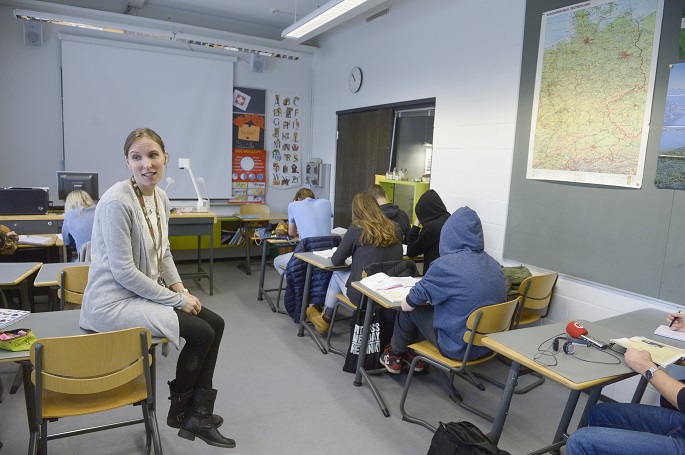OECD suggests Finland diversify adult education
Published : 20 Feb 2020, 00:48
Updated : 20 Feb 2020, 07:07
The Organisation for Economic Co-operation and Development (OECD) recommends that Finland diversify its adult education provision, making it more relevant for working life, and using economic incentives to encourage reskilling and upskilling.
Special attention should be paid to outreach and guidance services to adults with lower basic skills, said a government press release.
The Ministry of Education and Culture and the Ministry of Economic Affairs and Employment use the OECD recommendations for purposes such as reforming the continuous learning.
In its report titled Continuous Learning in Working Life in Finland published on Wednesday, the OECD makes recommendations to Finland on measures that will facilitate adaptation to the changing world of work and ensure that opportunities for reskilling and upskilling are available to everyone as needed.
According to the OECD, Finland should diversify its education and training provision, make the education and training provided more relevant to the labour market, incentivise individuals to engage in training programmes relevant to the labour market, provide comprehensive information and guidance services, develop tailored education programmes, and reach out to adults with low basic skills.
According to the OECD’s assessment, the strengths of the Finnish adult education system include its versatility and active participation. By international comparison, Finland boasts a high level of skills. Education is free or affordable, and it is available flexibly.
However, according to the OECD, the system does not offer optimal opportunities for upskilling and reskilling. Nor does the system provide education and training related incentives or guidance to those who need it most. Skills are unevenly distributed, and it is difficult to reach those most in need of training and education. The skills gap widens in working life: Finland has one of the largest gaps in learning participation between adults with low basic skills and those with higher skill levels amongst OECD economies.
There are growing concerns about the supply of skilled labour, given the demographic changes and stagnating levels of educational attainment. According to the OECD assessment, offering more targeted support for adults with low basic skills is imperative. The OECD encourages Finland to develop an overarching vision for the continuous learning system and to take into account the linkages between the adult learning system and other policy areas, such as initial education or the social security system.
“Everyone should have the right and a genuine opportunity for lifelong upskilling; this is the best way to ensure employability, and it is imperative for creating a high employment rate. It is also important that continuous learning is not a privilege reserved only for those with higher education. Instead, it must be an option for everyone, regardless of educational background. To this end, we have launched a reform of continuous learning with the objective of creating new models for on-the-job learning and for reaching out to groups that are currently underrepresented in adult education,” said Education Minister Li Andersson.
The reform is being prepared in cooperation between all political parties and social partners, who will complete their policy outline by the end of 2020. This outline will serve as a basis for the reform which will extend beyond the government term. A sub-group working under the Ministerial Working Group on Promoting Employment will contribute to the implementation of this reform.
“Education and training as well as upskilling are and will be the key tools for raising the employment rate in Finland and for solving problems such as the mismatch in labour market,” said Employment Minister Tuula Haatainen.
“We already have a shortage of highly skilled specialists, and this demand will only grow in the future. It is clear that we need more university graduates and more learning programmes targeting those with higher education. However, this alone is not enough. Higher education institutions should offer suitable opportunities for developing skills for all, including those who do not have a university degree,” said Science and Culture Minister Hanna Kosonen.


